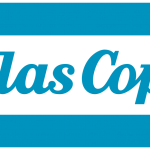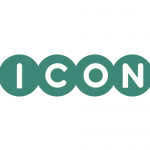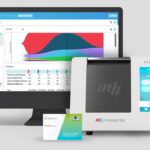- Pioneering pathogen detection company Biotia raises $2.4M in seed funding to expand its scientific board and further develop and implement Biotia’s diagnostic testing methods, including its AI-based software platform.
- Biotia has built one of the world’s largest precision metagenomics clinical databases by working with hospitals internationally.
Biotia, an NYC-based health tech company leveraging next-generation DNA sequencing (NGS) and artificial intelligence (AI) software for precision infectious disease detection and diagnosis, today announced an oversubscribed $2.4M seed raise and expanded scientific advisory board. The round was led by Falcon III Ventures, with participation from angel investors and venture capital firms including Hyperplane Venture Capital.
Precision Infectious Disease Diagnostics
Diagnosing infectious disease is challenging, with a high rate of failure resulting in high mortality and alarming levels of drug resistance. Culturing, the current gold standard and technology from the 1800s misses many important pathogens and requires many labor-intensive tests. Even newer PCR-based tests are limited, problematic and don’t provide drug resistance information.
Launched from Weill Cornell Medicine and Cornell Tech, Biotia leverages DNA sequencing-based technology and proprietary AI-powered software to rapidly and accurately identify microorganisms and antimicrobial resistance. Their mission is to fight infectious disease and deploy the leading reference library of microbes worldwide. The executive team includes Dr. Niamh B. O’Hara (Co-Founder, and CEO), Dr. Christopher E. Mason (Co-Founder, Global Director, and Associate Professor at Weill Cornell Medicine), Dr. Rachid Ounit (Co-Founder, and CTO) and Dr. Dorottya Nagy-Szakal (Chief Medical Officer), experts who have pioneered advances in the identification of pathogens, antimicrobial resistance, and clinical metagenomics.
The company plans to use the seed funding to further develop and implement Biotia’s diagnostic testing methods, including its AI-based software platform Chelsea that offers myriad advantages over the current approaches in hospitals, such as limited PCR panels or culturing.
Want to publish your own articles on DistilINFO Publications?
Send us an email, we will get in touch with you.
With one test, Chelsea can identify known and emerging bacteria, fungi, parasites, and viruses from a clinically-curated and annotated database of over 16,000 microbial species, as well as antimicrobial resistance (AMR) genetic markers and virulence genetic markers. Chelsea’s engine offers a “precision metagenomic” test, including a complete report of the microbial profile and predicted drug resistance. The company expects this test will provide the guidance needed by clinicians to provide faster, more effective patient treatment and will help hospitals significantly reduce the number of hospital-acquired infections (HAIs).The company plans to use the seed funding to further develop and implement Biotia’s diagnostic testing methods, including its AI-based software platform Chelsea that offers myriad advantages over the current approaches in hospitals, such as limited PCR panels or culturing.
With one test, Chelsea can identify known and emerging bacteria, fungi, parasites, and viruses from a clinically-curated and annotated database of over 16,000 microbial species, as well as antimicrobial resistance (AMR) genetic markers and virulence genetic markers. Chelsea’s engine offers a “precision metagenomic” test, including a complete report of the microbial profile and predicted drug resistance. The company expects this test will provide the guidance needed by clinicians to provide faster, more effective patient treatment and will help hospitals significantly reduce the number of hospital-acquired infections (HAIs).
Biotia’s Precision Metagenomics Clinical Database
Biotia has built one of the world’s largest precision metagenomics clinical databases by working with hospitals internationally. To date, this work has spanned across various medical environment samples and patient samples, including urine, stool, blood, sputum and soft tissue.
The company plans to launch new CAP/CLIA clinical diagnostic tests in early 2020. “We are excited for the next chapter at Biotia. After extensive validation, we are expanding our offerings from environmental testing and research-use patient tests to patient diagnostics to provide hospitals with better tools to diagnose and control infectious disease, improve health outcomes, and save lives,” said Dr. Niamh O’Hara, CEO of Biotia.
Expansion of Scientific Board
Biotia is also announcing an expansion to their scientific and clinical advisory board to include key industry leaders Barry T. Zeman, F.A.C.H.E., Dr. Don Goldmann and Dr. Steven Salzberg. Mr. Zeman was previously the CEO of three NY-based teaching hospitals, a board member of the Greater New York Hospital Association and is currently a member of a national study team to reduce HAIs. Dr. Goldmann is a Professor of Pediatrics at Harvard Medical School as well as a Professor of Immunology and Infectious Diseases, and Epidemiology at Harvard TH Chan School of Public Health. Dr. Salzberg is the Bloomberg Distinguished Professor of Biomedical Engineering, Computer Science and Biostatistics at Johns Hopkins University. Dr. Salzberg is also a member of the American Academy of Arts and Sciences, and a member of the Board of Scientific Counselors of the National Library of Medicine.
Dr. Robert Roland, infectious disease specialist at Overlook Medical Center, a New Jersey-based customer and part of the Atlantic Health System, said, “We have been very, very excited by the results we’ve seen from Biotia. We can already see how their technology can improve diagnostic methods and lead to life-saving identification of pathogens.”
Source: Hit Consultant








